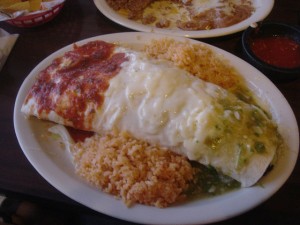Today was the last methods course class session, and the topic was History on the Internet. Williams’s The Historian’s Toolbox, which was published in 2007, was our reading for today. Williams tacks on a chapter at the tail end about history on the web. For the most part, he’s talking about ways to access digital archives and electronic versions of published scholarship. He spends a good chunk of the chapter disparaging Wikipedia, picking up on Stephen Colbert’s notion of Wikiality and “truthiness.” And at the very end, he tosses in something about blogs written by historians as yet another format for scholarship.
It strikes me that Williams’s perspective is so, so 2007.
Wikipedia in particular has come a long way from Colbert’s 2006 savaging of its openness, to the point where I think the far more sensible approach to it for historians and educators is not to block it (as one of my students said her high school did) or simply ban students from using it as a source (which, as I’ve written elsewhere, simply cuts off opportunities for fruitful inquiry), but rather to help students:
- Understand how it’s built
- Contribute to it responsibly
- Become judicious and self-aware users of it
Likewise, I think Williams’s approach was like that of many in academia: cautiousness about the value of born-digital scholarship and a tendency to rely on web versions of familiar scholarly products (the journal, the conference paper, the archive and library) rather than employ the inherent qualities of the web to ask and answer questions of interest to historians.
Last semester I used a bit of Dan Cohen’s talk to the December 2010 Coalition on Networked Information, based on his forthcoming book research, titled “The Ivory Tower and the Open Web.” This time I used a longer clip – about the first half hour – and then we had a very productive discussion. My students immediately grasped that Cohen is calling for deep cultural change in academia, and correctly surmised that he has some convincing to do to bring these ideas from the margins into the mainstream of scholarship. They admired his chutzpah. The first 15 minutes, especially, are helpful as Cohen uses an example from the vernacular web called the Burrito Bracket, to contrast the way knowledge is made on the web and the way it’s made in academia. Someone asked how you can possibly monetize a site like that, but I suggested maybe you don’t need to… that maybe the bracket-maker did it for the love of the burrito.
One of my students asked a question that I think goes right to the heart of the problem as it currently stands. “What’s the incentive for scholars to collaborate in this way?” Um, right now? Very little. I really liked that NPR story yesterday about the 48-hour Random Hacks of Kindness weekend, bringing together people to apply their geek skills to real-world problems. It’s a competition, yes, but the participants did it for free (and didn’t you love how they said that the “dark ages” were 2-5 years ago?).
I think the wave of the future is to find ways to show that substantive group blogs and digital tools and online open-source journals and hack-a-thon conferences are legitimate scholarship activities for granting tenure in the humanities. In the meantime those who have interests in bridging popular and academic scholarship, who like making and using digital tools, and who grasp the value of crowdsourced Web 2.0 collaborative processual ways of working and thinking need to keep at it to pave the way. And also because it carries its own rewards, its own satisfactions in what you learn along the way as you build.
In other words, we do it purely for the love of the burrito.
(Burrito: Curt’s Burrito Macho)














